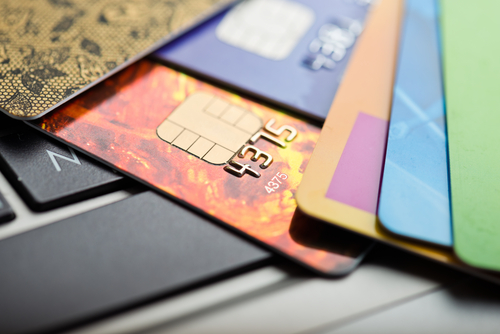There are pros and cons of both credit and debit cards. Before you load your wallet with a series of credit cards, or request a debit card for each of your bank accounts, you should educate yourself on the pros and cons of each. Here is a list of strengths and weaknesses of debit and credit cards.
Debit Cards
Pros: Debit cards are a convenient way to carry the equivalent of cash. Debit cards link directly with your checking or savings account and each time you use it funds are deducted directly from the account that card is linked with. Whenever you make a purchase with your debit card you must enter a four-digit PIN, as a security procedure. The limit of your debit card is the same amount of money you have in the account. Debit cards are easily acquired, as banks take no risks when they provide these cards. You can only spend what you already have so there are no monthly payments.
Cons: The cons of debit cards are few, but severe. If you spend more than what is directly in the account linked with the card you’re charged an overdraft fee. These fees can be anywhere between $30 to $50 for each transaction executed while there are no funds in your account. You must repay both the amount spent plus the overage fees. It’s a pricey consequence, especially if you’re unaware you’ve overdrafted and make more transactions with your card.
Another danger of debit cards are the lack of security which surround them. Since your card is linked with your bank account, if someone steals your card they have instant access. The PIN you set up should provide some protection, though many debit cards can be run as credit, bypassing the use of a PIN altogether. Investigating this kind of fraud can take a lot of time and the longer you put off reporting it, the more liability you’ll face. Look into your bank’s fraud protection policy so you know the risks of debit card fraud.
Credit Cards
Pros: Credit cards provide you a line of credit, or loan, which you will be expected to pay in full within 30 days. You can put off pricey items until your next paycheck comes in. Build your credit score every time you make a payment on time. Your credit score directly influences the loans banks will offer you. This includes home and car loans.
Credit cards aren’t your actual funds. If anyone steals your credit card, cancel it as quickly as possible. If the person has made purchases with it, you can claim fraud and fill out a claim. While this is a hassle, it’s also much easier to prove than with a debit card. Also, you may have noticed a small microchip on your newest credit card. This is an EMV. An EMV is a payment process like the magnetic strip on the back of the card. However, an EMV communicates a series of complex transactions which include cryptographic processes. This makes credit cards more secure, in many ways, than debit cards. Credit monitoring and identity theft prevention services are still helpful in case you’re account is compromised.
Cons: While credit cards can help you build up your credit score, they can also destroy it. Some Americans are financially crippled by credit card debt. Many credit cards have variable interest rates which can be increased and make it difficult for you to make minimum payments. If your credit score is poor it’s very difficult to take out a loan for a house or car, even after you’ve paid off your debt.

Leave a Reply